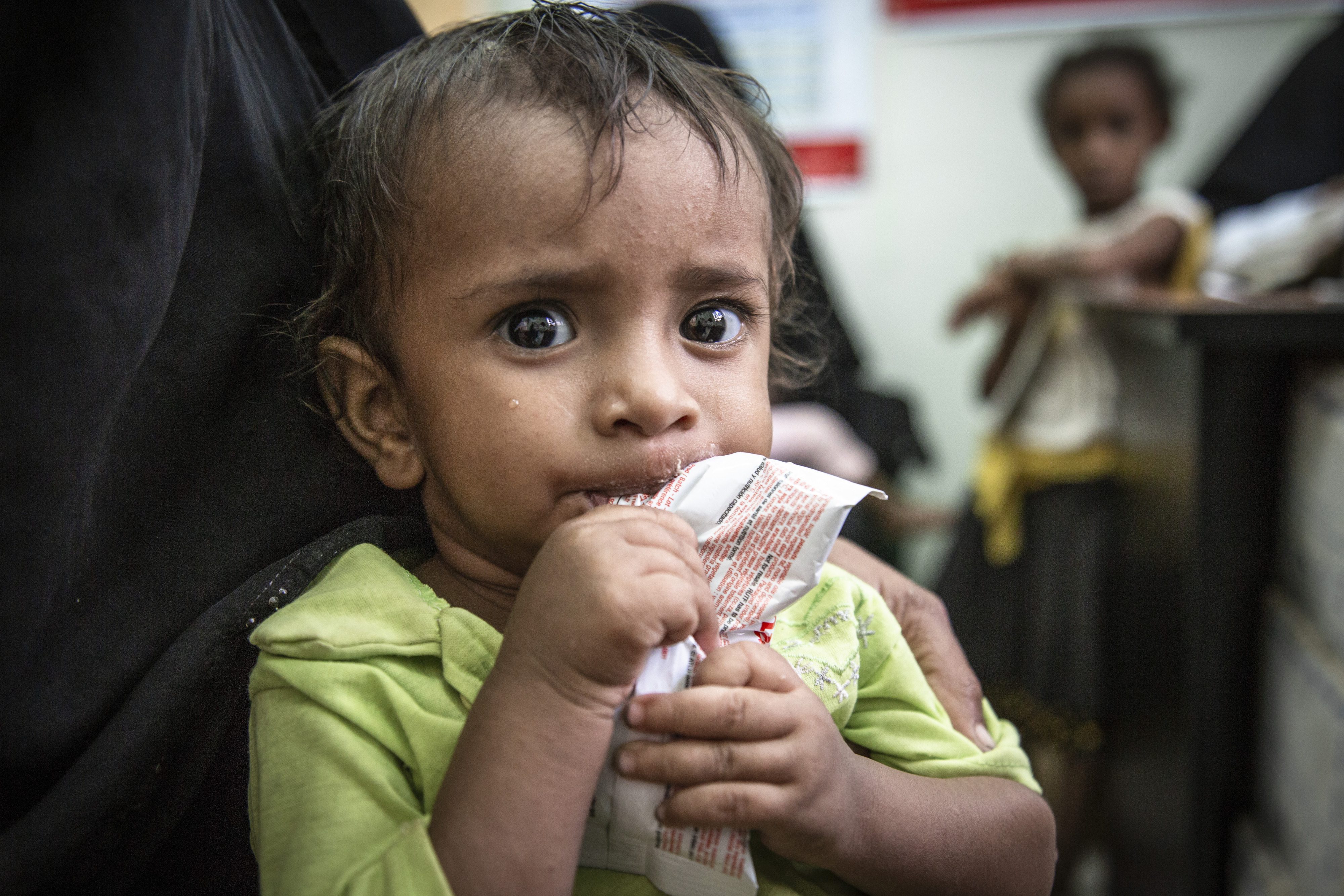Save the Children will be distributing food parcels with fresh fruits and vegetables in northern Syria, targeting pregnant women and new mothers, to combat hidden hunger in children and mothers.
Seven hundred thousand more children face hunger in Syria owing to the country’s badly-damaged economy, partly due to the impact of the COVID-19 restrictions. It means in the last six months, the total number of food insecure children across the country has risen to more than 4.6 million. After almost ten years of conflict and displacement, an unprecedented number of children in Syria are now battling soaring rates of malnutrition, a new report by Save the Children reveals.
Samira lives in a camp with her children and extended family in NES Syria. They are 15 people living in a tent. Samira has been displaced for one and a half years and gave birth to her twins in the camp. Amid increasing food prices, the collapse of the currency and the concerns around Coronavirus, Samira is worried about the health and nutrition of her children, one of whom is already malnourished.
Years of war, the restrictions imposed by the corona virus and massive job losses have destroyed the livelihoods of millions of people in Syria. Currency devaluation and a reduction in the flow of goods have intensified the crisis and pushed up food prices more and more. According to the World Food Programme (WFP), a basket of food that can feed a family now costs more than 23 times as much as the average before the Syrian crisis and more than twice as much as the previous peak in 2016.
A whole generation of children are facing the risk of malnutrition, because their families simply can no longer afford to put a meal on the table.
Almost ten years of destructive conflict in Syria has hit those who are least responsible the hardest – children. From a nutrition and childcare perspective, infants and young children are particularly vulnerable to malnutrition, illness and death in Syria. With the crisis far from over, they need immediate protection and support.
COVID-19 and malnutrition
Integrating life-saving nutrition interventions into humanitarian response is crucial, particularly during the context of COVID-19. Services to protect, promote and support optimal age-appropriate and safe complementary foods and feeding practices should remain a critical component of the programming and response for young children in the context of COVID-19. So far 5380 positive cases have been confirmed throughout Syria, the food supply is becoming more and more expensive, massive job losses, currency devaluations and reductions in the flow of goods have worsened the situation.
Noura (10)
"The last time I had fruit was more than 2 months ago. When I ask my parents to buy us some, they say we can barely afford food."
nutrition is am fundamental right
Malnutrition means having too little or too much to eat or not eating the right foods. In more technical terms, it is condition which occurs when a person’s nutrient and energy intake does not meet, or exceeds, their individual requirements for growth, immunity and organ function. Malnutrition manifests itself in many forms, which can broadly be categorized as overnutrition, undernutrition and micronutrient related malnutrition. A prolonged lack of nutritious food in the daily meals can cause lifelong risks for children, including stunting, or chronic malnutrition. In Syria, at least one in eight children, or 500,000, currently suffer from this condition
Malnourished children face myriad risks to their health and wellbeing, such as stunting, which limits children’s ability to fight off disease, increases the likelihood of anxiety and depression, and leads to poor performance in school.
The complete report "Hidden Hunger" can be downloaded here pdf - 5,69 MB
